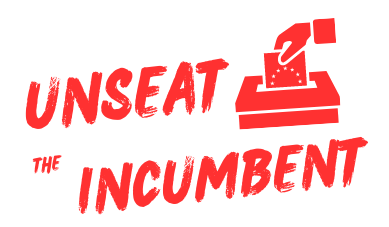A democratic society is built on accountability, which makes sure that individuals in positions of authority are held accountable for their choices and actions. It protects against corruption and the abuse of power. The accountability system is susceptible to manipulation, though. Politicians who are currently in office frequently have a lot of power and money, which gives them the ability to sabotage the very system designed to hold them accountable. This blog examines how the system of accountability can, and occasionally does, become compromised by incumbents.
By concentrating power in their own hands, incumbents erode accountability in one of the main ways. As they solidify their grasp on power, they can amass political capital, have command over the party apparatus, and enjoy good ties to important constituencies. since of the consolidation, the system is less effective since they can manipulate or go around checks and balances.
Politicians in power may try to take over crucial institutions designed to maintain accountability, like the judiciary, law enforcement, and oversight organizations. They can sway investigations, thwart justice, and guarantee that any possible wrongdoing goes unpunished by placing allies or loyalists in important positions.
To hold individuals in positions of power accountable, a strong system of checks and balances is necessary. By eroding the independence of the court, curtailing the authority of legislative bodies, or firing government officials who object to their policies, incumbents frequently try to remove these balances. Weakening these controls may lead to a situation where responsibility is jeopardized.
Dissenting voices, such as journalists and activists, may be targeted by incumbents through legal action, intimidation, and harassment. They can control the narrative and protect themselves from criticism by restricting press freedom and suppressing opposition, which makes it more difficult for accountability measures to be successful.
Election rules and campaign funding restrictions are regularly abused by incumbents to their benefit. They can limit their chances of losing their seats by gerrymandering or using unrestricted campaign spending to level the playing field. Since they are less likely to face difficult electoral challenges, this undercuts the democratic process and accountability.
Accountability is founded on transparency. However, incumbents could impose information access restrictions, making it more difficult for the general public and the media to review their deeds. They can shield any potential misbehavior or contentious judgments from the public by lowering openness.
As they build a network of devoted supporters who profit from their activities, incumbents frequently utilize their power to bestow favors and patronage on their loyalists. This can create a culture of favoritism where people are more willing to ignore or defend the wrongdoings of the incumbent, further undermining accountability.
Conclusion
Democratic societies are seriously threatened by the incumbents’ deterioration of the system of accountability. The fundamental foundation of democracy is threatened when those in authority manipulate institutions, repress opposition, and erode checks and balances. It is the responsibility of the populace, civic society, and the media to be on guard and hold elected officials responsible for their deeds. It is possible to fend off these dangers and make sure that democracy is robust and accountable by having informed and involved citizens. Remember that democracy’s true power rests in its capacity to self-correct and hold those in positions of authority accountable for their actions.
